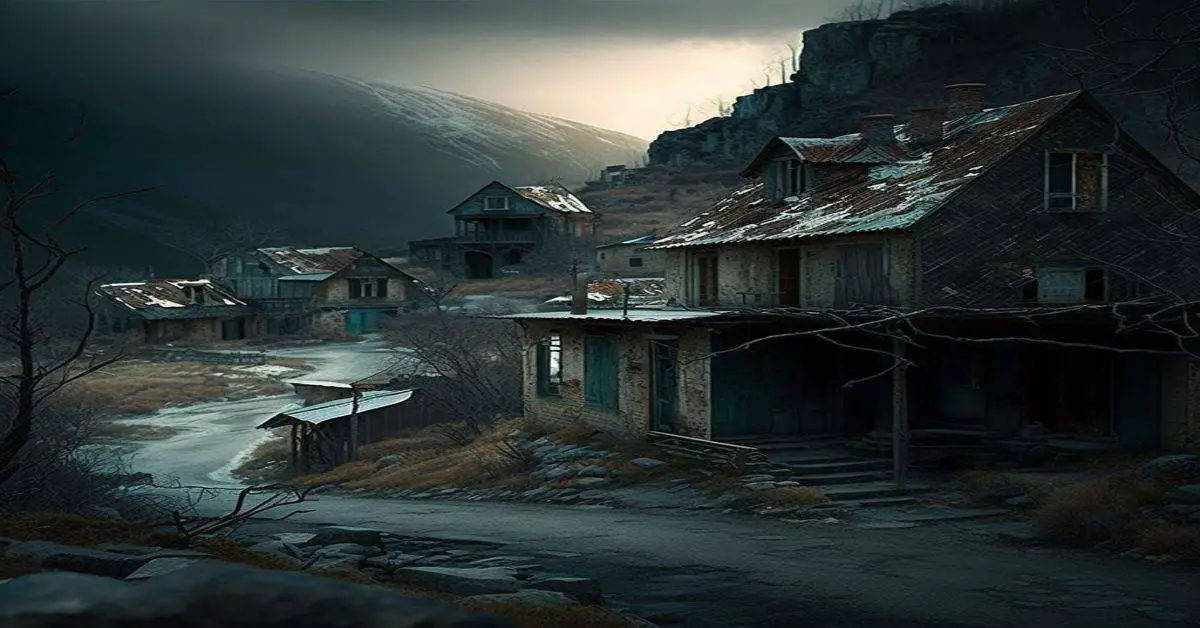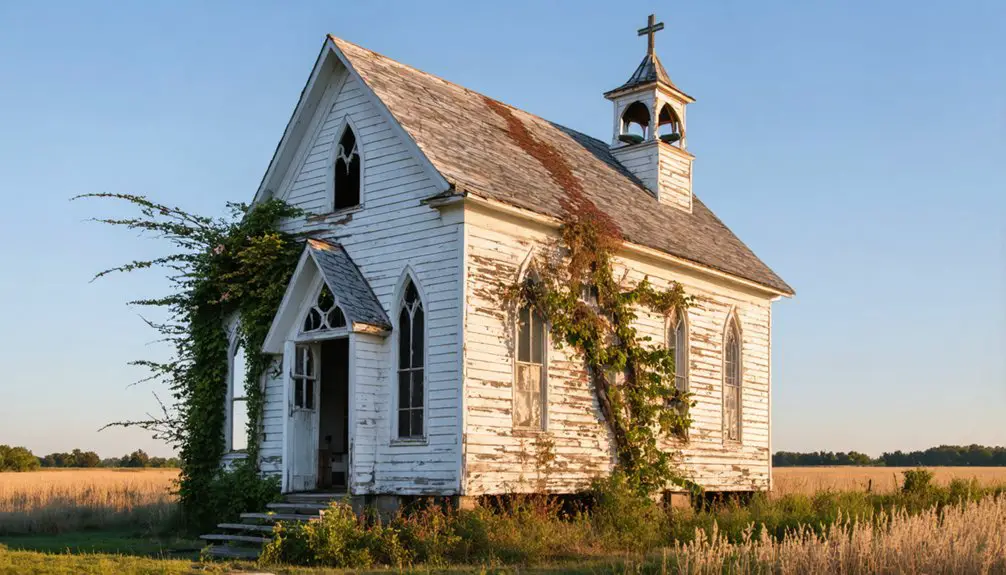Bankston, a small town in Choctaw County, Mississippi, was once a thriving community known for its factories producing supplies for the Confederate Army during the Civil War. The town’s strategic location made it an important hub for the Confederate Army’s supply line, and its factories played a significant role in providing essential goods to the troops.
However, on December 30, 1864, the Union Army burned the town to the ground, leaving only one remaining structure – an old store. Today, Bankston is a ghost town with factories now just a forest, and the only reminder of its past is an old cemetery.
The burning of Bankston was a significant event that contributed to the downfall of the Confederacy. The destruction of the town’s factories and supplies disrupted the Confederacy’s supply line and weakened their ability to fight the war.
The reasons behind the Union Army’s decision to burn Bankston are still debated, with some claiming it was a strategic move to cripple the Confederacy’s supply line. In contrast, others argue it was an act of revenge for the town’s support of the Confederate Army.
In this article, we will delve deeper into the history of Bankston, exploring the reasons behind its destruction and its significance in the Civil War. By examining the events that led to the town’s downfall, we can better understand the impact of the Civil War on small communities and the lasting effects of the conflict on the region.
Key Takeaways
- Bankston was a small town in Choctaw County, Mississippi, known for its factories that produced supplies for the Confederate Army during the Civil War.
- The Union Army burned the town to the ground on December 30, 1864, disrupting the Confederate Army’s supply line and weakening their ability to fight the war.
- The destruction of Bankston was part of a larger Union strategy to disrupt the Southern economy by destroying sources of production and supply lines.
- Bankston’s legacy serves as a reminder of the impact of the Civil War on small communities and the lasting effects of the conflict on the region.
History of Bankston
The history of Bankston, Mississippi, involves its destruction by the Union Army on December 30, 1864, due to its production of supplies for the Confederate Army.
The town was founded in Choctaw County, Mississippi, in the early nineteenth century and quickly became known for its factories that produced goods for the local community.
Notable Bankston residents included the factories’ owners and workers, who were instrumental in the town’s economic growth.
However, Bankston’s prosperity was short-lived as the Civil War erupted, and the town became a target for the Union Army.
On December 30, 1864, the Union Army burned the factories in Bankston without any loss of life or shots fired.
After the burning, the town was left in ruins and never fully recovered.
Today, the only remaining structure in Bankston, Mississippi, is an old store, and the factories are now just a forest.
Nonetheless, the history of Bankston remains an important part of Choctaw County’s past.
“Being that Bankston was an inland town, it was too far from major waterways and rivers. The closest railroad was in Greenwood or Columbus. All the mail came by way of Greenwood, with the postman riding horseback from Greenwood to Bankston. This resulted in mail not getting to Bankston and its environs anywhere from two to five, sometimes six days. This because of the pleased to announce that high water of the Big Black River swamp.”
https://www.newspapers.com/article/choctaw-plaindealer-bankston-mississipp/20139197/
Burning by Union Army
During the Civil War, Union forces destroyed the town of Bankston in Mississippi, which was producing supplies for the Confederate Army. On December 30, 1864, the factories in Bankston were burned without a shot fired or loss of life. This action was part of a larger Union strategy to disrupt the Southern economy by destroying sources of production and supply lines.
The burning of Bankston had a significant impact on the local community. The destruction of the town’s factories and infrastructure meant that those who relied on those industries for their livelihoods were left without work and resources. Furthermore, the loss of property and homes left many families destitute.
The historical context of the Union Army’s actions demonstrates the brutality of war and the far-reaching consequences of military strategies on civilian populations.
Remnants of Bankston Today
Remnants of the factories that once supported the local community in Mississippi can still be found in the forested area where Bankston once stood. The town was burned by the Union Army in 1864, and today, the only remaining structure in Bankston is an old store. The Bankston Hotel, where eleven raiders spent the night after the burning, is also gone. However, visitors can still see the old Bankston cemetery, which serves as a reminder of the town’s rich history.
The factories, once the lifeblood of Bankston, are now just a forest. Despite losing the town’s infrastructure, the area still holds a unique charm. The old store, in particular, is a popular destination for history buffs and visitors, who seek to learn more about the town’s past.
Overall, while the physical remnants of Bankston may be gone, its legacy lives on through the memories and stories of those who once called it home.
Frequently Asked Questions
Were there any attempts to rebuild Bankston after it was burned down?
Despite its historical significance, there were no known rebuilding efforts in Bankston after the Union Army burned it down. The town remains a ghost town, with only ruins and an old store.
What was the population of Bankston, Mississippi, before the burning?
There is no available information on the population of Bankston before it was burned down. Demographic breakdown is also unknown.
Did any notable figures or events occur in Bankston before its destruction?
Possible output: Bankston’s political significance before its destruction is unclear. No notable figures or events have been recorded in the town’s history.
How did the burning of Bankston impact the surrounding communities?
The burning of Bankston by the Union Army in 1864 had long-term effects on the surrounding communities. The destruction of factories and supplies impacted the economy, while the loss of life and property caused a negative community response.
Are there any plans to preserve or commemorate the history of Bankston, Mississippi?
“Preservation efforts and commemoration events for Bankston are currently unknown. However, historical societies and local government officials may consider developing initiatives to preserve and commemorate the town’s history in the future.”


